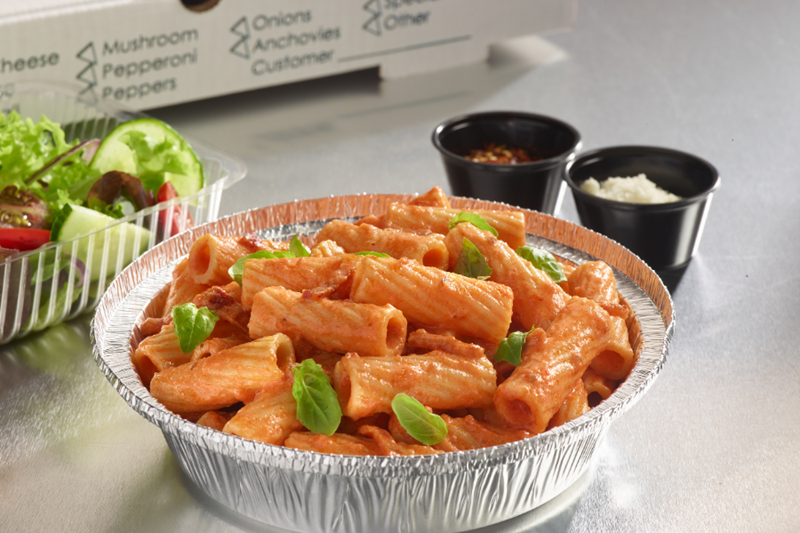A customer leaves without paying, and you want to make the server pay for the meal. Another customer spills red wine on her white blouse and demands you pay the dry cleaning bill. A manager works 51 hours one week and wants to be paid eleven hours at time-and-a-half.
For some scenarios, you should call a lawyer. For others, you need advice from non-legal experts. How do you know whether you need a lawyer, and how do you find one?
Why you might need a lawyer
Lawyers don’t only file lawsuits. They give advice, too. “People are more afraid of lawsuits than they should be,” says Michael Lieberman, a San Francisco-based solo practitioner with several restaurant clients. “Sometimes it’s not so much lawsuits, but just talking through problems.”
Restaurant operators call their lawyers not necessarily to sue someone, but to ask what could happen if they fired a tardy employee or changed some tip rules. Operators might not call their lawyers when a customer becomes ill from the food. That’s because a restaurateur’s liability insurance should cover these claims, and the insurance company assigns a lawyer to the case.
“I see employment problems as more urgent for an individual operator because usually the sorts of claims made in employment cases are not insured claims,” Lieberman says. Those claims include sexual harassment, wrongful termination or violations of the labor code. Except for large chains with hundreds of workers, few restaurants buy employment practices liability insurance.
You might need a lawyer if you decide to franchise your concept, or if you decide to become a franchisee of someone else’s restaurant company. A lawyer can help a would-be franchisor find out whether a restaurant’s name has been trademarked by someone else. The lawyer can educate the franchisor on business opportunity disclosure laws, instruct the franchisor on what he or she can legally tell the public and prospective franchisees, and file documents with designated state agencies.
The attorney can also help franchisees understand contracts. “That’s not something that can be read by laymen and understood,” says Philip Zeidman, an attorney with Piper Rudnick in Washington, DC. “He needs a franchise lawyer to tell him what his rights are, and tell him if any elements in the agreement are beyond the traditional boundaries: is he giving less than is typical? Is he demanding more of the franchisee than is typical?”
There are other reasons to use a lawyer. Say you catered a huge party, and months later the client hasn’t paid the bill. An attorney might be able to help collect. Or you might need a lawyer to set up your business as a corporation. Tax lawyers also can help if you are audited by the IRS.
Selecting the lawyer
Shop for a lawyer before you need one. “Part of the problem of waiting to get an attorney until you need one is you don’t have a relationship with them, so you don’t have the ability to just call and say, ‘Hey, do I need to talk to you about this problem?’” Lieberman says.
Start with word-of-mouth. Ask other restaurant operators to recommend an attorney they’ve hired. Find a lawyer who works in the right specialty. “You’re not going to have your fry cook rewire your lighting system,” says Josh Kirkpatrick, a Denver attorney who represents employers in disputes. “You wouldn’t get a tax lawyer when you’re sued for discrimination.”
There are databases such as www.martindale.com, where you can search for a lawyer by city and by specialty. But, “there is no way to evaluate a lawyer just by looking at his bio,” says Kirkpatrick, whose firm is Littler Mendelson. Anyone can claim expertise.
There are also guides such as An International Who’s Who of Franchise Lawyers. The Best Lawyers in America list is searchable at www.bestlawyers.com. You can click on your city and a specialty such as “personal injury litigation” or “construction law.”
Local bar associations can also refer someone. For $25, the San Francisco Bar Association sets up a half-hour interview with a lawyer who specializes in the field you need. You can find out ahead of time whether the attorney has worked with a similar case, and whether you actually get along with the person.
“You want to pick somebody you feel comfortable with on a personal level, someone that doesn’t scare you,” Lieberman says.
Also try your local restaurant association for names.
When you get a contact, “ask for a brief meeting at no charge to get to know one another,” says Zeidman, who is also the general counsel for the Washington, DC-based International Franchise Association. “Shake his hand, find out what kind of work he’s done.” Don’t use the introductory meeting to ask for free advice.
Costs
Lawyers generally charge anywhere from $125 to $250 an hour. Some charge more. It depends on the size of the firm (solo practitioners often charge less) and how many years experience they have.
Zeidman says if you are franchising your restaurant, expect to pay about $10,000 to $15,000 for a team of senior and junior level attorneys and paralegals to prepare a document. Filing fees ($1,500 to $2,000 per state) are separate from lawyers’ fees. If you are a potential franchisee, expect to pay for about ten hours of the lawyer’s time to read and explain a contract.
If you hire a lawyer to collect an unpaid debt, the lawyer will likely charge you a percentage of the collection.
When you don’t need a lawyer
You don’t have to call a lawyer for every employment issue. If you have a question about wage rules or need to know which OSHA posters to display in your break area, try your local restaurant association or an employer association group such as the California Association of Employers (www.employers.org) or the MidAtlantic Employers’ Association (www.meainfo.org).
A third party payroll service should be able to handle wage and hour compliance questions. The National Restaurant Association’s legal resources at www.restaurant.org/legal also offers information. The NRA’s Information Services and Library and general counsel are available to NRA members for advice on specific questions.
Also, says Zeidman, you don’t need a franchise lawyer too early in the franchising process. If you are thinking about franchising, many of the questions you need to answer are economic, not legal. “I am not suggesting calling the first time someone wakes up in the morning and has the word ‘franchise’ in his head,” Zeidman says.
And don’t forget the old standby: prevention by training. In many areas (food safety, sexual harassment, alcoholic beverage service) you may be able to prevent lawsuits by properly training employees. No lawsuit means no lawyer.



